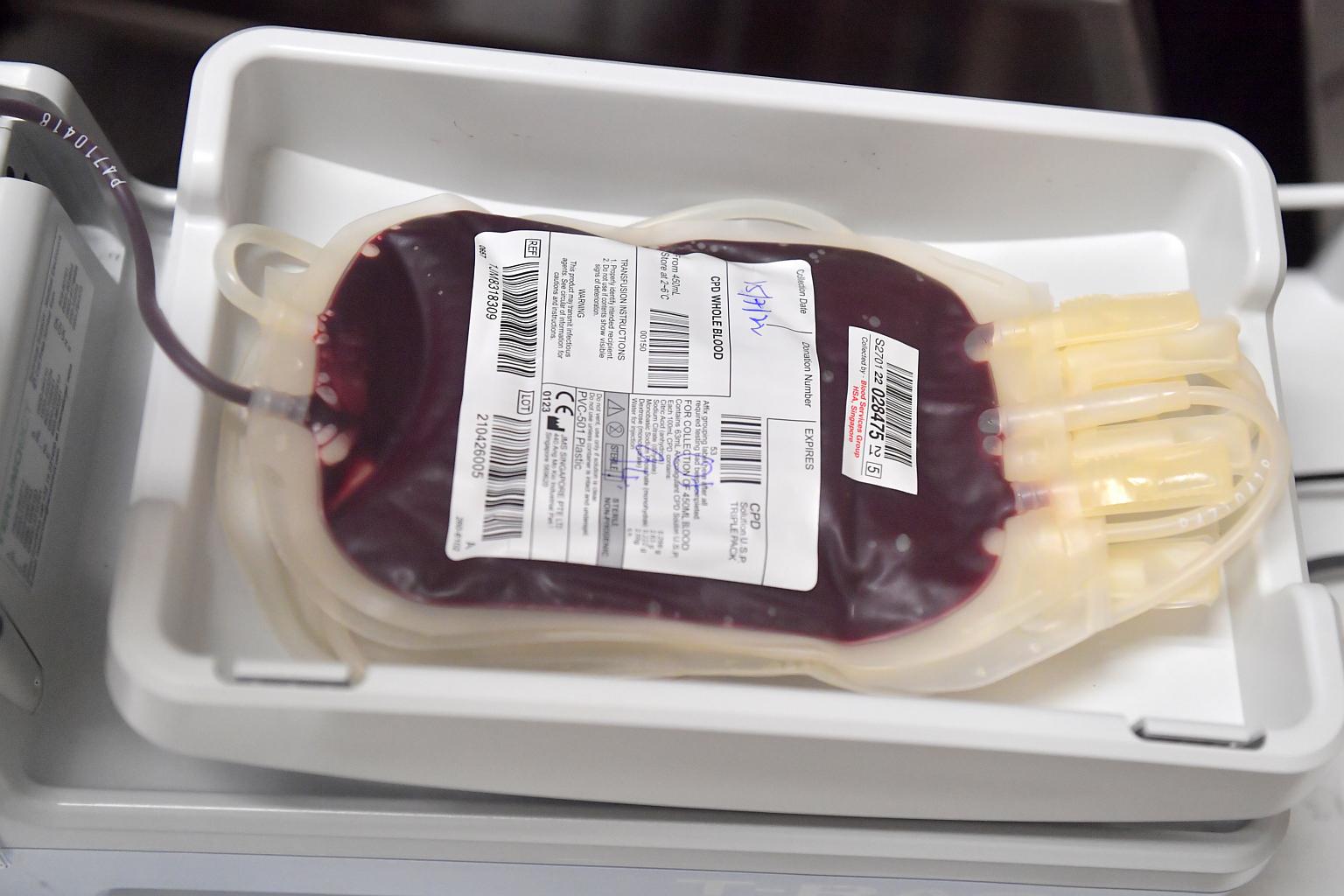askST: Can I donate blood if I had Covid-19?
Sign up now: Get ST's newsletters delivered to your inbox

Potential donors will need to fill in a questionnaire on their medical history before donating blood.
ST PHOTO: ALPHONSUS CHERN
SINGAPORE - With blood stocks here running low, what should you know before donating blood?
The Straits Times gets the answers from the Singapore Red Cross (SRC) and the Health Sciences Authority (HSA).
Q: Who is eligible to donate blood in Singapore?
A: Blood donors here should be between the ages of 16 and 60 and weigh at least 45kg. Those aged 17 and younger must get their parents' consent before donating blood.
They will also need to have a haemoglobin level of at least 12.5g/dl for women and at least 13g/dl for men, with haemoglobin tests conducted at the donation site.
Haemoglobin is a specialised protein in red blood cells that carries oxygen to the tissues and takes carbon dioxide from the tissues to the lungs.
The HSA recommends that donors eat iron-rich foods in the weeks before donation to ensure a healthy level of haemoglobin.
They should also not show symptoms of infection - such as sore throat, runny nose or diarrhoea - in the past week, and not had a fever in the last four weeks.
Potential donors will need to fill in a questionnaire on their medical history before donating blood.
Q: Where can I donate blood?
A: Blood donations can be made at one of Singapore's four blood banks - at HSA in Outram, Dhoby Ghaut, Westgate Tower and the Woodlands Civic Centre.
Potential donors can also visit this website to check for upcoming community drives in their area, or make an appointment.
Q: Can I donate blood if I have recently recovered from a Covid-19 infection? What if I have been recently vaccinated against the coronavirus or taken a booster shot?
A: People with a prior Covid-19 infection can donate blood only at least 28 days after first testing positive to ensure that they have fully recovered.
In addition, those who recently received a shot of a Covid-19 vaccine must wait before donating, said HSA.
Those who have taken an mRNA vaccine such as those by Pfizer-BioNTech or Moderna, or either the Sinovac or Sinopharm vaccine, can donate blood a week after getting the shot if they do not show any side effects.
But those who suffer muscle aches or pains at the site of the injection must wait a week after the pain vanishes.
People who develop side effects such as fever or chills after any Covid-19 vaccine must wait at least four weeks after the side effects have been resolved before donating blood.
Those who have taken virus-vector-based or live attenuated vaccines - such as those from AstraZeneca or Johnson & Johnson - or other types of vaccines must also wait at least four weeks after vaccination or after any side effects have been resolved, whichever is longer.
Q: Can I donate blood if I have recently contracted dengue fever, or have other medical conditions, such as high blood pressure or diabetes?
Those who have dengue fever can donate blood only six months after a full recovery. If a member of your household has dengue fever, you should wait at least four weeks before donating.
Those whose hypertension, or high blood pressure, is being treated by a single medication and have no other related complications can donate blood if their blood pressure is within the acceptable range on the date of donation.
But people who take more than one type of medication for hypertension cannot donate blood.
Similarly, people whose diabetes is controlled by diet or are on a single oral diabetes and have no other related complications may donate blood.
Those on multiple oral diabetes drugs or insulin therapy cannot donate blood.
Q: I recently travelled overseas when travel restrictions were eased. Can I donate blood?
Potential donors will have to answer questions on their travel history before donating blood.
People who have travelled within the last four months may be subject to travel-related donation restrictions and should check their eligibility with HSA.
Travelling to certain countries or regions may make you ineligible for blood donation for a period of time due to the higher risk of infection from blood-transmitted diseases such as malaria or the West Nile virus, said SRC.
SRC recommends that people donate blood before travelling overseas to avoid any inconvenience.



